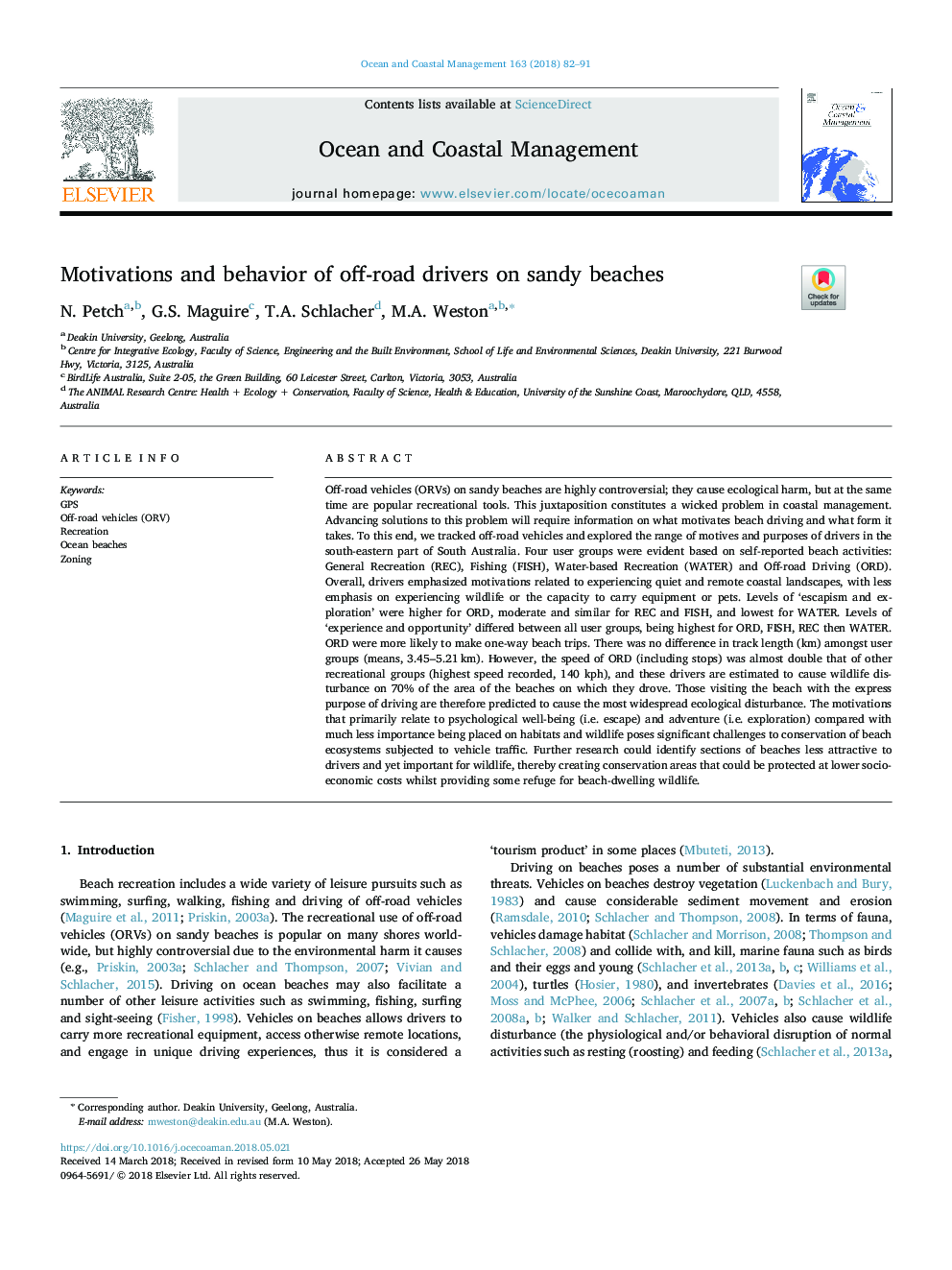| کد مقاله | کد نشریه | سال انتشار | مقاله انگلیسی | نسخه تمام متن |
|---|---|---|---|---|
| 8060511 | 1520466 | 2018 | 10 صفحه PDF | دانلود رایگان |
عنوان انگلیسی مقاله ISI
Motivations and behavior of off-road drivers on sandy beaches
ترجمه فارسی عنوان
انگیزه و رفتار رانندگان بیرونی در سواحل شنی
دانلود مقاله + سفارش ترجمه
دانلود مقاله ISI انگلیسی
رایگان برای ایرانیان
موضوعات مرتبط
مهندسی و علوم پایه
علوم زمین و سیارات
اقیانوس شناسی
چکیده انگلیسی
Off-road vehicles (ORVs) on sandy beaches are highly controversial; they cause ecological harm, but at the same time are popular recreational tools. This juxtaposition constitutes a wicked problem in coastal management. Advancing solutions to this problem will require information on what motivates beach driving and what form it takes. To this end, we tracked off-road vehicles and explored the range of motives and purposes of drivers in the south-eastern part of South Australia. Four user groups were evident based on self-reported beach activities: General Recreation (REC), Fishing (FISH), Water-based Recreation (WATER) and Off-road Driving (ORD). Overall, drivers emphasized motivations related to experiencing quiet and remote coastal landscapes, with less emphasis on experiencing wildlife or the capacity to carry equipment or pets. Levels of 'escapism and exploration' were higher for ORD, moderate and similar for REC and FISH, and lowest for WATER. Levels of 'experience and opportunity' differed between all user groups, being highest for ORD, FISH, REC then WATER. ORD were more likely to make one-way beach trips. There was no difference in track length (km) amongst user groups (means, 3.45-5.21â¯km). However, the speed of ORD (including stops) was almost double that of other recreational groups (highest speed recorded, 140 kph), and these drivers are estimated to cause wildlife disturbance on 70% of the area of the beaches on which they drove. Those visiting the beach with the express purpose of driving are therefore predicted to cause the most widespread ecological disturbance. The motivations that primarily relate to psychological well-being (i.e. escape) and adventure (i.e. exploration) compared with much less importance being placed on habitats and wildlife poses significant challenges to conservation of beach ecosystems subjected to vehicle traffic. Further research could identify sections of beaches less attractive to drivers and yet important for wildlife, thereby creating conservation areas that could be protected at lower socio-economic costs whilst providing some refuge for beach-dwelling wildlife.
ناشر
Database: Elsevier - ScienceDirect (ساینس دایرکت)
Journal: Ocean & Coastal Management - Volume 163, 1 September 2018, Pages 82-91
Journal: Ocean & Coastal Management - Volume 163, 1 September 2018, Pages 82-91
نویسندگان
N. Petch, G.S. Maguire, T.A. Schlacher, M.A. Weston,
